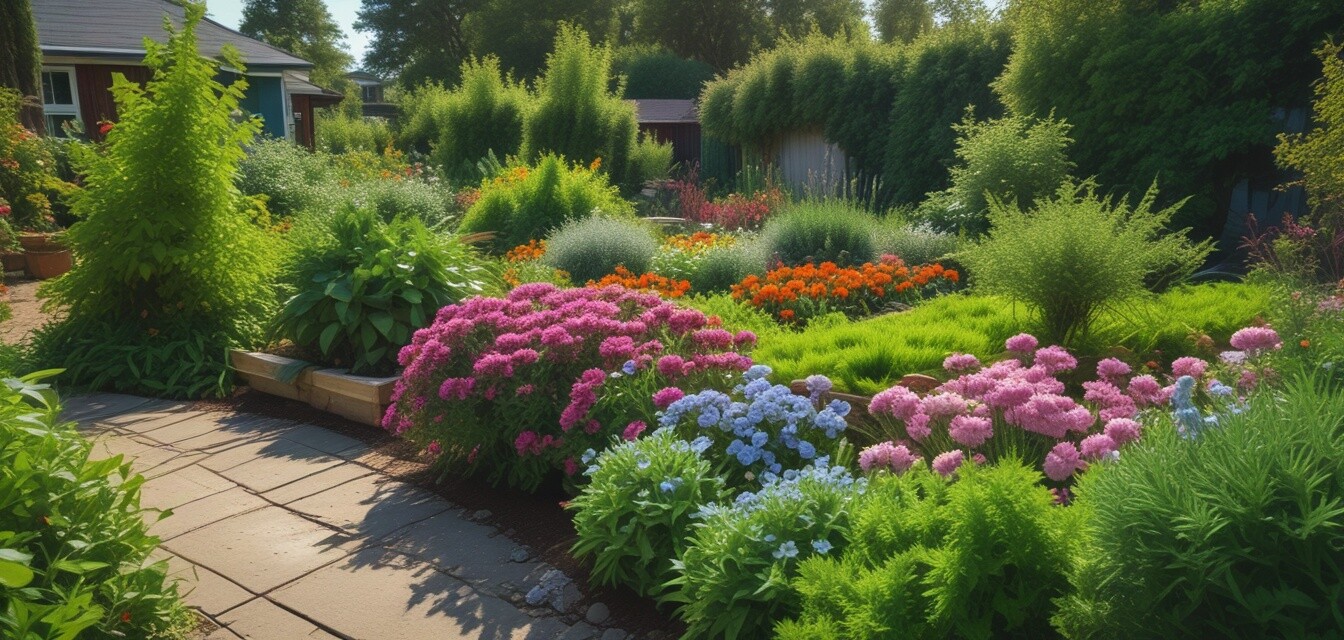
The Role of Gardening in Climate Resilience
- Gardening practices contribute significantly to climate resilience.
- Sustainable ecosystems can be built through various gardening techniques.
- Home gardens can reduce urban heat and help manage stormwater.
- Community gardening fosters a sense of connectedness and encourages sustainable practices.
- Innovative irrigation systems can optimize water usage and improve plant health.
As climate change becomes more pronounced, the role of gardening in contributing to climate resilience cannot be overstated. Through various practices, gardeners have the potential to positively impact our environment and create sustainable ecosystems. Whether you’re an experienced gardener or just starting, understanding how your gardening choices can help combat climate change is vital.
Understanding Climate Resilience
Climate resilience refers to the ability of individuals, communities, and ecosystems to effectively respond to and recover from climate-related stresses. In the context of gardening, it encompasses several practices that encourage sustainability and biodiversity.
Gardening as a climate change response
Gardening plays a crucial role in mitigating the effects of climate change. Here are some ways it contributes to climate resilience:
| Gardening Practice | Impact on Climate Resilience |
|---|---|
| Native Plant Selection | Supports local ecosystems and requires less water and maintenance. |
| Companion Planting | Enhances biodiversity and reduces pest infestations naturally. |
| Rainwater Harvesting | Utilizes natural rainfall, reducing reliance on municipal water supplies. |
| Organic Gardening | Minimizes chemical use, promoting healthier soil and ecosystems. |
Water Management in Gardening
Innovative irrigation systems are vital in achieving efficient water usage. Techniques like drip irrigation and rain gardens help conserve water while ensuring plants receive adequate hydration. These systems not only support plant health but also reduce runoff and promote groundwater recharge.
The Importance of Biodiversity
A diverse garden thrives on the principle of biodiversity. By incorporating various plant species, gardeners not only attract pollinators but also create a balanced ecosystem. Enhanced biodiversity enriches the soil, improves pest control naturally, and boosts the resilience of the overall garden.
Community Gardening: A Collective Effort
Community gardens are becoming increasingly popular as urban spaces adapt to climate challenges. They provide an avenue for neighbors to come together, share resources, and learn sustainable practices. Such initiatives strengthen community bonds while also contributing to local food security and biodiversity.
Pros
- Enhances community spirit through collaboration.
- Provides fresh produce and reduces food miles.
- Encourages sustainable practices and environmental stewardship.
Cons
- Requires collective commitment and management.
- Space constraints in urban areas can be limiting.
- Needs ongoing maintenance and funding.
Conclusion
Gardening is an essential component of climate resilience. By adopting sustainable practices, selecting the right plants, and engaging with community gardening efforts, we can cultivate not only beautiful gardens but also healthier ecosystems. As climate challenges continue to rise, our gardens can serve as a powerful tool in the fight for a sustainable and resilient future.
Stay Updated
For more insights on sustainable gardening practices, check out our News and Trends section. Stay informed on innovative gardening techniques, seasonal tips, and the newest products making waves in the elite gardening community.
Tips for beginner gardeners
- Start small by creating a manageable garden bed.
- Research native plants that thrive in your region.
- Experiment with composting to enhance soil health.
- Learn basic irrigation techniques to conserve water.
- Engage with local gardening clubs for support and inspiration.